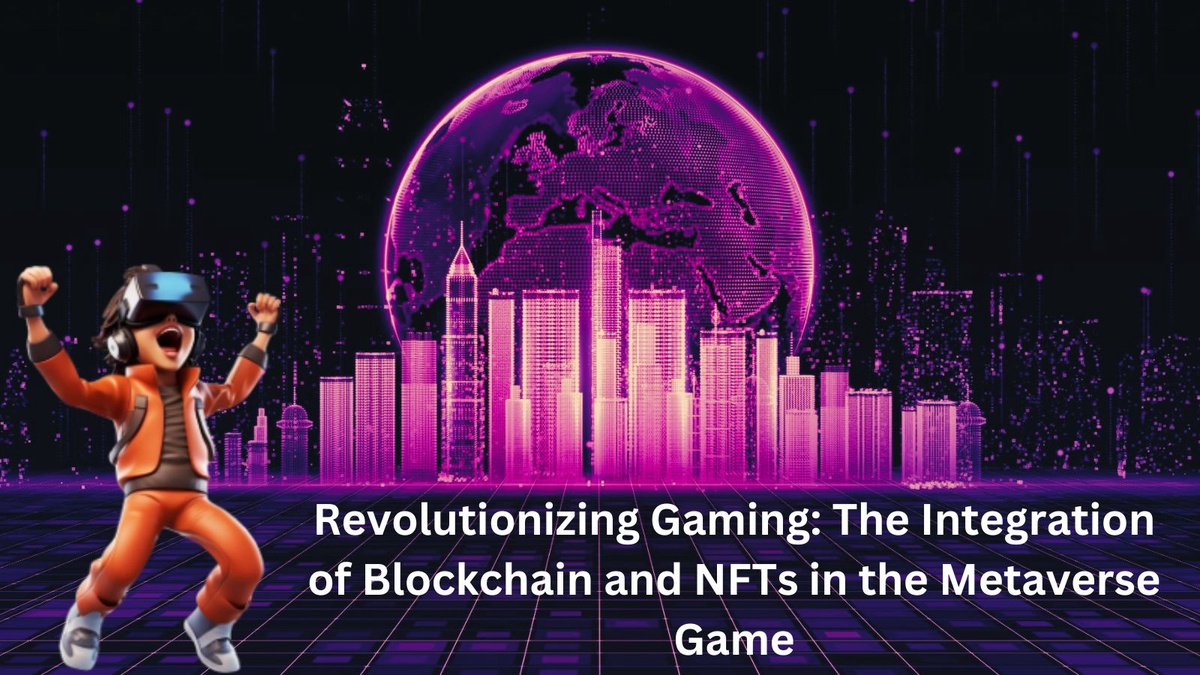For the past decades, the gaming industry has undergone a significant and serious transformation, with the integration of blockchain technology and non-fungible tokens (NFTs) into metaverse games. This fusion is creating a more immersive, interactive, and ownership-driven gaming experience.
Blockchain: The Foundation of the Metaverse
Blockchain technology is the base of cryptocurrencies like Bitcoin and Ethereum, and it is the main key element in constructing the infrastructure of the metaverse. Metaverse is a 3D-based virtual space specially built to provide users with a real-life-like experience. Metaverse is considered to be the emerging technology for the new frontier of gaming.
The decentralized, secure, and transparent nature of blockchain makes it the perfect tool for recording and verifying transactions in the metaverse. Every purchase, sale, or trade of digital assets that takes place in a metaverse gaming environment is recorded on a blockchain network, thus ensuring fairness and trust among players and preventing fraud-based activities.
NFTs: The Unique Digital Assets
Non-fungible tokens (NFTs) are another groundbreaking innovative technology raised from blockchain technology that has impacted a significant change in the metaverse gaming space. NFTs are unique tokens that can represent ownership of a specific item or piece of content and are stored on the blockchain, which verifies their authenticity and ownership.
In the world of metaverse games, NFTs can represent in-game assets such as characters, avatars, items, or even virtual real estate. These digital assets can be bought, sold, or traded on the blockchain, just like physical assets in the real world.
The Impact of Blockchain and NFT on Metaverse Game
The integration of blockchain technology and NFTs into metaverse games has created a profound impact on the gaming industry.
Ownership:
NFTs are unique digital assets that represent ownership of in-game items, characters, or virtual real estate. In metaverse games, players can buy, sell, and trade these NFTs, which give them true ownership of virtual items. Players can now truly own their in-game assets, trade them with others, and potentially even earn a living from their in-game activities. This is a significant shift from traditional gaming models, where all assets are owned by the game developer.
Interoperability:
NFTs can be interoperable across different metaverse games. For example, an NFT character or weapon acquired in one game can be potentially used or traded in another metaverse game that supports the same NFT standards. This will probably enhance the overall gaming experience for players, thus paving the way for cross-platform possibilities.
Player-Generated Content:
Metaverse games often encourage players to create their own content. Players can design and mint NFTs, which can represent skins, clothing, accessories, or even virtual art. The ability to create and monetize digital content within the metaverse is a compelling feature for both creators and players
Digital Identity:
Today, many metaverse games are exploring the use of NFTs for digital identity. Your in-game achievements, avatar, and digital assets can be represented as NFTs, creating a unique digital identity that you can carry across different metaverse platforms.
Smart Contracts:
Smart contracts are self-executing contracts that are incorporated with the agreement in the form of code. These smart contracts can be used to automate various in-game processes, such as item crafting, trading, and sales. Smart contracts run on blockchain networks, ensuring transparency and trust in transactions.
Conclusion
On the whole, the integration of blockchain technology and NFTs into metaverse games has impacted a groundbreaking shift in the gaming industry. This integration introduced a new dimension to player engagement, ownership, and the overall gaming experience. As metaverse games continue to evolve, it is the perfect time for businesses and entrepreneurs to enter into this metaverse gaming by choosing an accomplished Metaverse Game Development Company. Finally, the future of metaverse games is an exciting frontier, and it holds the promise of transforming the way we connect, explore, and create within digital realms, ultimately blurring the lines between the virtual and the real.


No comments yet